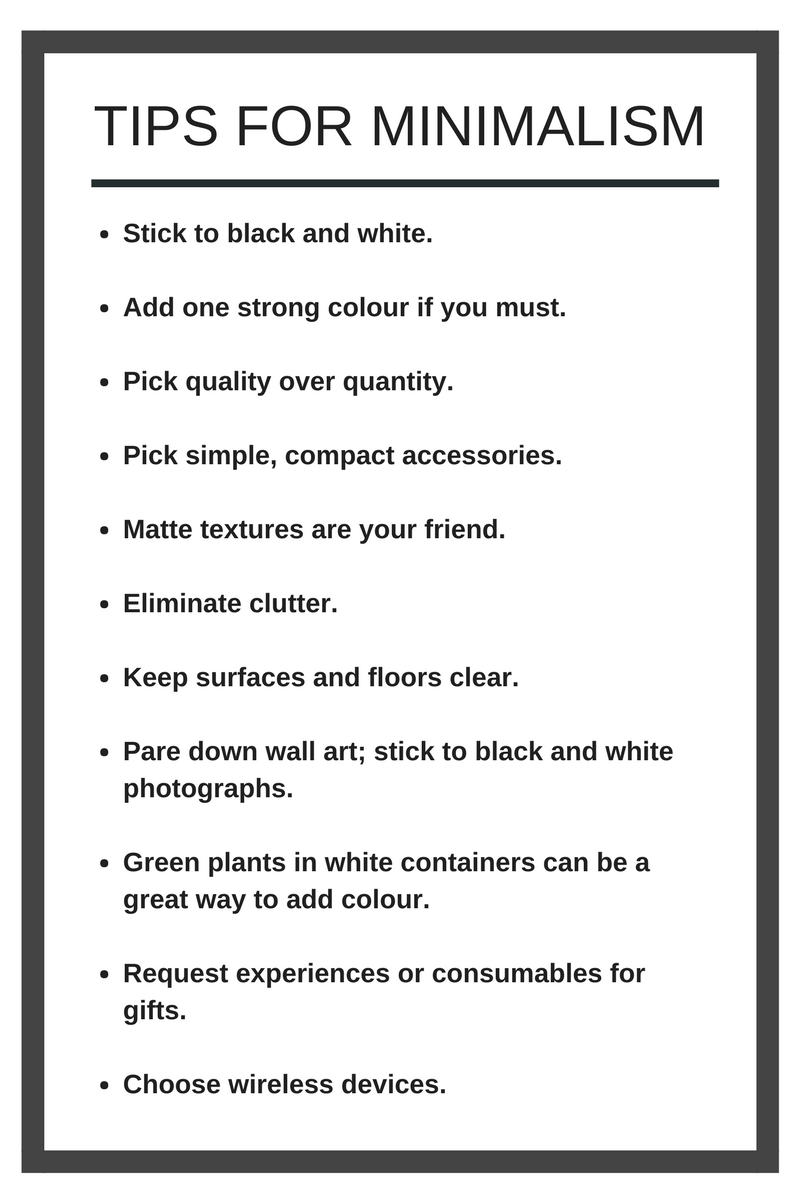
Minimalism has become popular in recent years; a response to a sense of overwhelming possessions and not enough space. It’s usually mentioned in relation to homes and clothing.
Minimalist Homes
When you picture a minimalist home, you’re likely thinking of an achingly chic Tokyo apartment. This elegant lack of clutter is due to necessity, not aesthetics. Space is at a premium, housing costs are high and earthquakes are relatively frequent. Furniture is generally simple, portable and designed to be stored away. This allows families to reduce potential injuries during earthquakes and maximise the space they have available.
(In February 2016, the average monthly rent for a flat in Tokyo was the equivalent of £1290 a month. For an average office worker, that can easily be 60% of their salary).
For a student, the key lesson here is about maximising the space you have. You will likely spend a lot of time in your room, and you need to be able to use it properly. Your main furniture - bed, desk, chair - will be provided by Mighty Student Living but you need to buy other things, and keep them as minimalist as possible.
Critiques of Minimalism

Chelsea Fagan of the Guardian recently referred to minimalism scathingly as “another boring product wealthy people can buy.” Her critique is based on the idea that it’s easy to restrict yourself to 100 items or less when those items are of the highest quality and you can afford to replace them regularly. One of Ms Fagan’s other critiques was that it smacked of playing poverty.
Another article pointed out that minimalism, and it’s cousin decluttering, was for people with plenty of disposable income and an excess of worldly goods. For example, the idea of whittling down your wardrobe to 33 carefully curated pieces per season is attractive, but a bit ridiculous if your (total) wardrobe consists of 12 items and a couple of coats. However there are good reasons to choose minimalism, even if - especially if - you're on a student budget.
3 Reasons to Choose Minimalism
- Saving Money
Minimalism is a great way to save money. Less stuff usually means less expenditure. And there is an odd contradiction where simple, mono colour items are usually the cheapest and most expensive items available. A pure white, plain double duvet cover can be a premium, £100+ item at Jasper Conran, and be the cheapest, most basic, £6.99 option at Argos.
- Time Saved
Minimalism will save you time. Cleaning is easier with fewer objects, and it’s easier to find things if everything has it’s place. You will have fewer distractions and won’t have to turn your bedroom over every time you need to find a cable. A minimalist wardrobe in a restricted palette makes getting ready in the morning much easier, and that palette can be applied to your bedroom as well.
- Space Saved
Minimalism will save you space. It’s popularity in Japan (and Tokyo in particular) is borne of necessity. Students have shared facilities but limited personal space, and need to make the most of it. Storage is the key to this. You can buy cheap, basic boxes that will slide under your bed (measure first). Or taller storage that can be tucked into a wardrobe.






